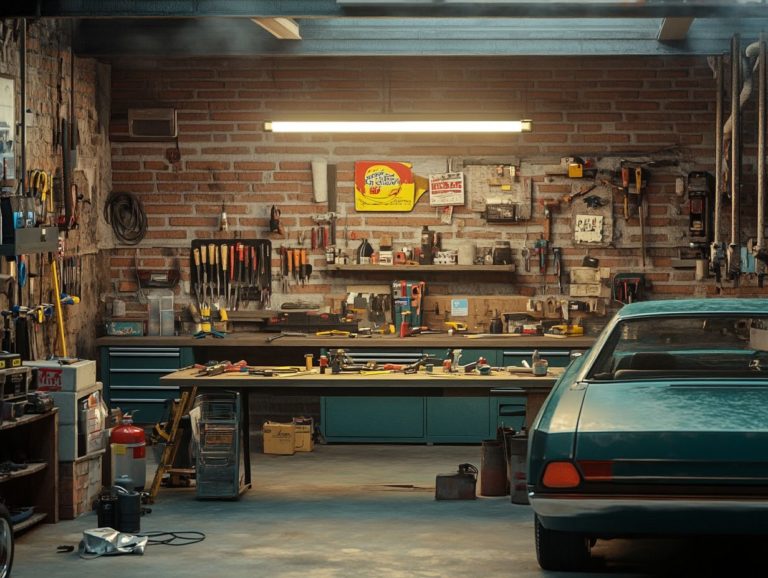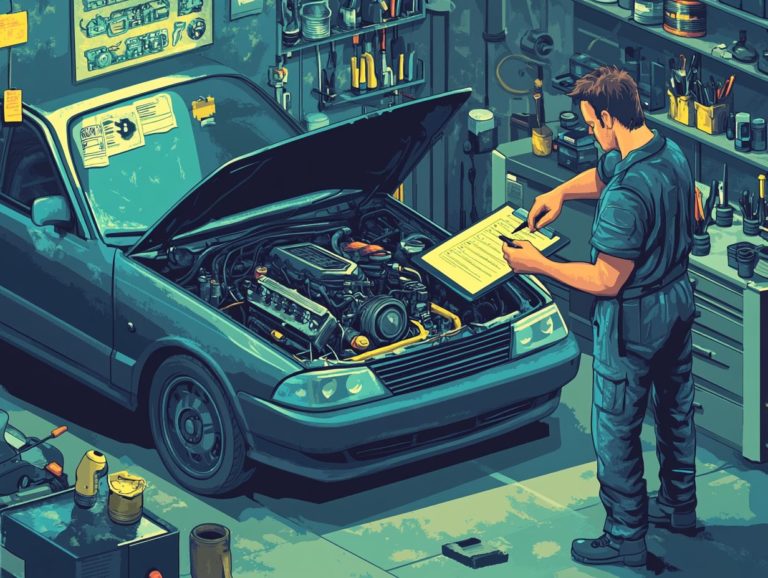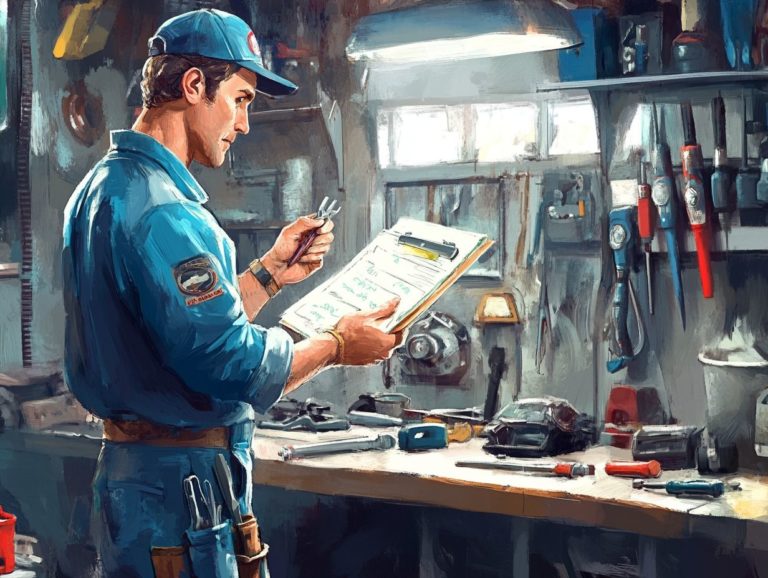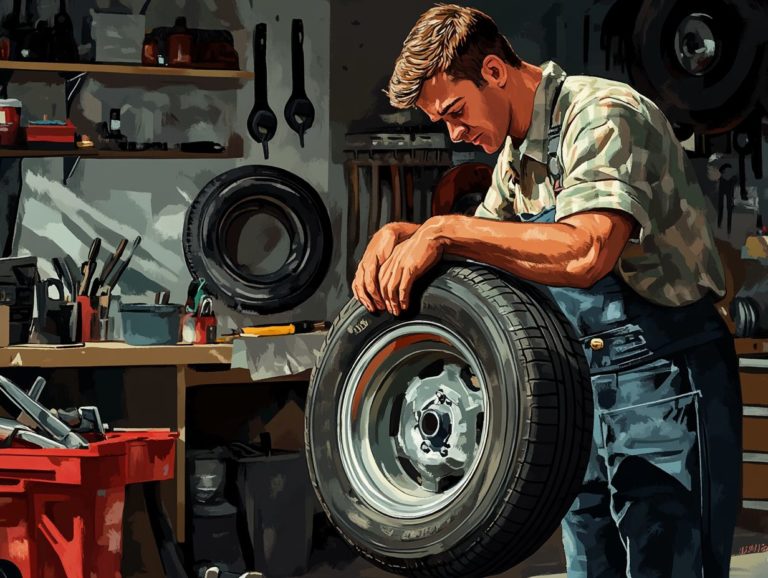How to Handle Common Exhaust Problems
Exhaust issues can transform a smooth ride into a bumpy headache if you let them slide. From odd noises to peculiar smells, recognizing the signs of exhaust problems is crucial for maintaining your vehicle’s performance and safety.
This article delves into common causes of these issues, helping you identify them and determine whether you can handle the repairs yourself or if it’s time to call in the professionals.
You’ll also find tips to keep your exhaust system running smoothly. Stay tuned to ensure your car remains in peak condition!
Contents
Key Takeaways:
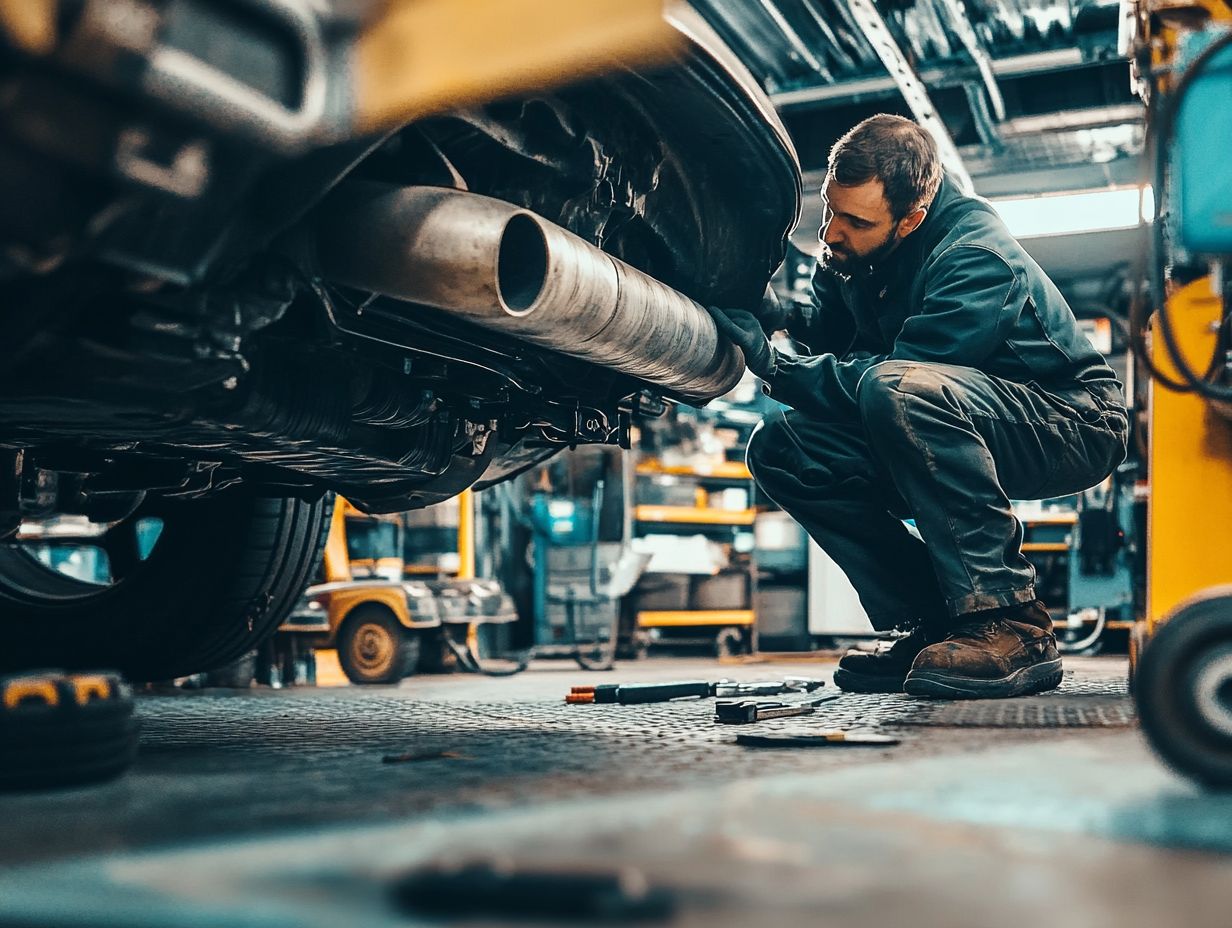
- Regular maintenance can prevent common exhaust problems.
- Identifying warning signs early saves time and money.
- Seek professional help for complex exhaust issues.
Understanding Exhaust Problems
Understanding exhaust problems is essential for you as a car owner, as these issues can significantly impact your vehicle’s performance, fuel efficiency, and overall safety. Learning how to maintain your car’s exhaust system can help you address these concerns effectively.
The exhaust system plays a pivotal role, consisting of parts like the muffler, catalytic converter (which helps reduce harmful emissions), and oxygen sensor. Each component can face common challenges such as exhaust leaks, muffler damage, and rust.
If these issues are overlooked, you may experience increased engine noise, harmful exhaust fumes, and even those dreaded check engine warnings. Regular checks are essential to keep your car running at its best!
Common Causes of Exhaust Issues
Common causes of exhaust issues often arise from the wear and tear of various components, including the exhaust system, muffler, catalytic converter, and oxygen sensor. These parts can be significantly impacted by factors like rust and road debris.
Over time, prolonged exposure to heat and moisture can lead each component to fail, resulting in critical malfunctions. For example, the muffler might develop leaks, which can compromise noise reduction and overall vehicle performance.
The catalytic converter, vital for converting harmful emissions, may clog or suffer damage, especially when unburned fuel makes its way through. When the oxygen sensor degrades, it can disrupt your vehicle s air-fuel mixture, negatively impacting both efficiency and emissions.
Corrosion and rust can considerably weaken these components, often worsened by harmful road debris like stones and salt that accelerate deterioration. Understanding these issues highlights the necessity for regular automotive maintenance to prevent costly repairs and ensure safe driving.
Identifying Exhaust Problems
Spotting exhaust problems early saves money and boosts your vehicle’s performance. There are several signs you should be vigilant about, such as unusual engine noises, noticeable exhaust fumes, and increased noise levels from your vehicle.
Conducting a thorough visual inspection and performing smoke testing can be invaluable in spotting these issues before they become serious. Don t overlook any check engine warnings that appear, as they may point directly to exhaust-related concerns.
Signs and Symptoms to Look Out For
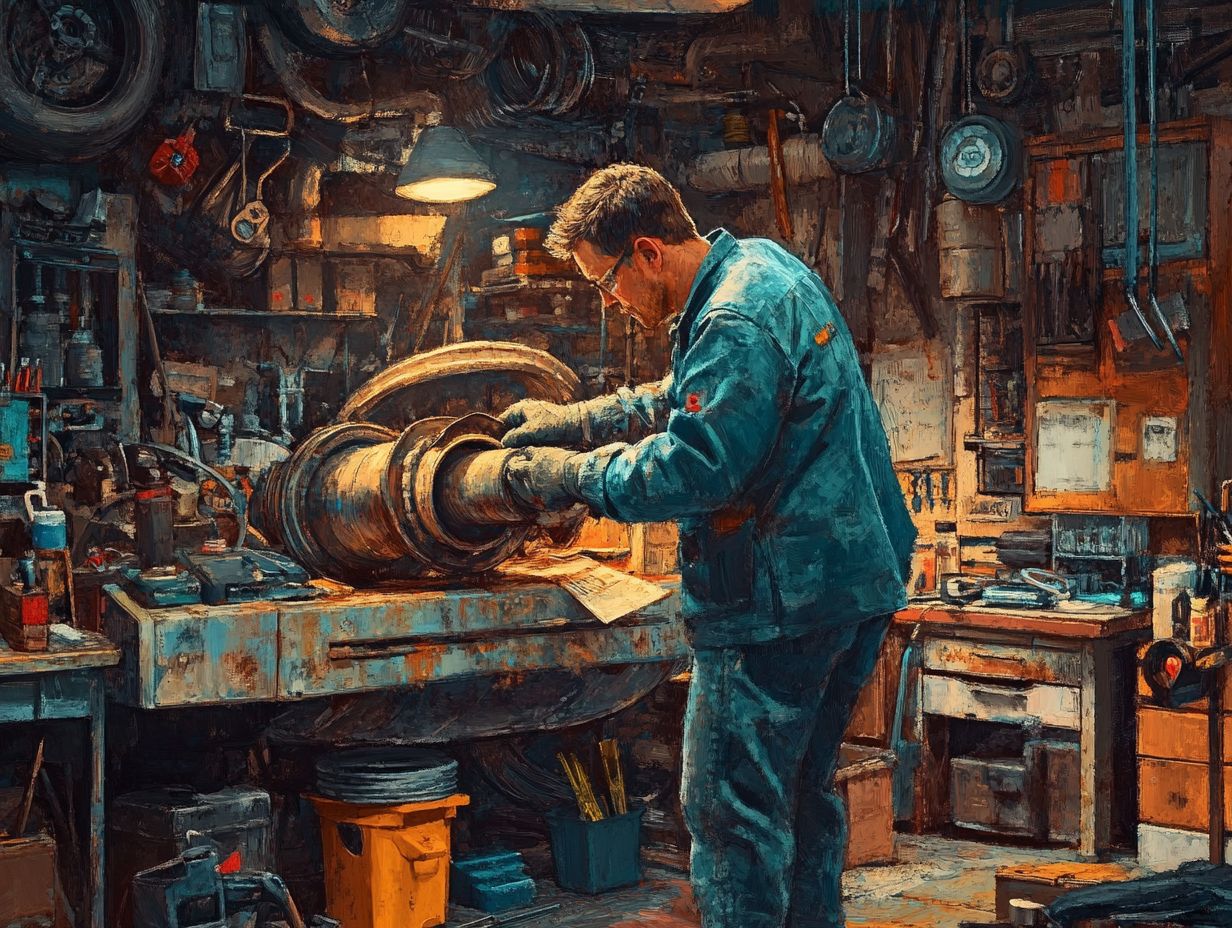
Regarding exhaust problems, be vigilant for signs and symptoms like exhaust leaks, unusual engine noise, reduced fuel efficiency, and visible exhaust fumes. To effectively address these issues, consider following tips for maintaining your car’s exhaust system, as these can all indicate underlying issues with your vehicle’s exhaust system.
For example, exhaust leaks not only amplify engine noise but can also diminish overall performance by allowing harmful gases to escape. This can affect how efficiently your engine operates, often resulting in a noticeable drop in fuel economy.
If the check engine light makes an appearance, consider it a critical warning sign that demands your attention; it could mean your exhaust system needs immediate care. Consulting a professional mechanic as soon as you notice these symptoms can help you prevent more severe damage and keep your vehicle running smoothly.
Don t wait! Address exhaust issues today to keep your car safe and efficient.
Dealing with Exhaust Problems
Addressing exhaust problems requires careful evaluation of your options. You might tackle minor issues with some DIY solutions, but for more complex repairs, it may be wise to consult a professional and learn how to identify and fix exhaust issues.
This approach not only addresses immediate concerns but also supports the long-term maintenance of your vehicle. As a car owner, it s essential to weigh your choices. Some repairs demand expert skills and tools that only a seasoned mechanic can provide.
Make informed decisions to keep your vehicle running smoothly!
DIY vs Professional Solutions
When dealing with exhaust problems, you often face the choice between fixing the issue yourself or seeking professional help. Both options have advantages and considerations that can significantly impact the repair process.
A DIY approach can lead to substantial savings on labor costs and offer a rewarding hands-on learning experience. You ll gain a deeper understanding of your vehicle. However, it s essential to acknowledge the risks of improper repairs that could create safety hazards or worsen existing mechanical issues.
Professional mechanics offer a level of reliability and a wealth of experience crucial for addressing complex problems not suited for amateurs. Their expertise is particularly valuable when tackling intricate exhaust systems that need specialized tools and knowledge.
Ultimately, assess your own skills and comfort levels before diving into repairs. This ensures safe and effective results!
Preventing Exhaust Problems
Preventing exhaust problems is crucial for maintaining your vehicle’s health. By following effective maintenance tips, you can significantly reduce the risk of issues like rust, exhaust leaks, and muffler damage. This also ensures your car runs at its best!
Regular visual inspections of your exhaust system can reveal potential concerns, especially in areas vulnerable to road debris or harsh weather that promotes corrosion. Keeping a keen eye on these details helps safeguard your vehicle’s performance and longevity.
Maintenance and Care Tips
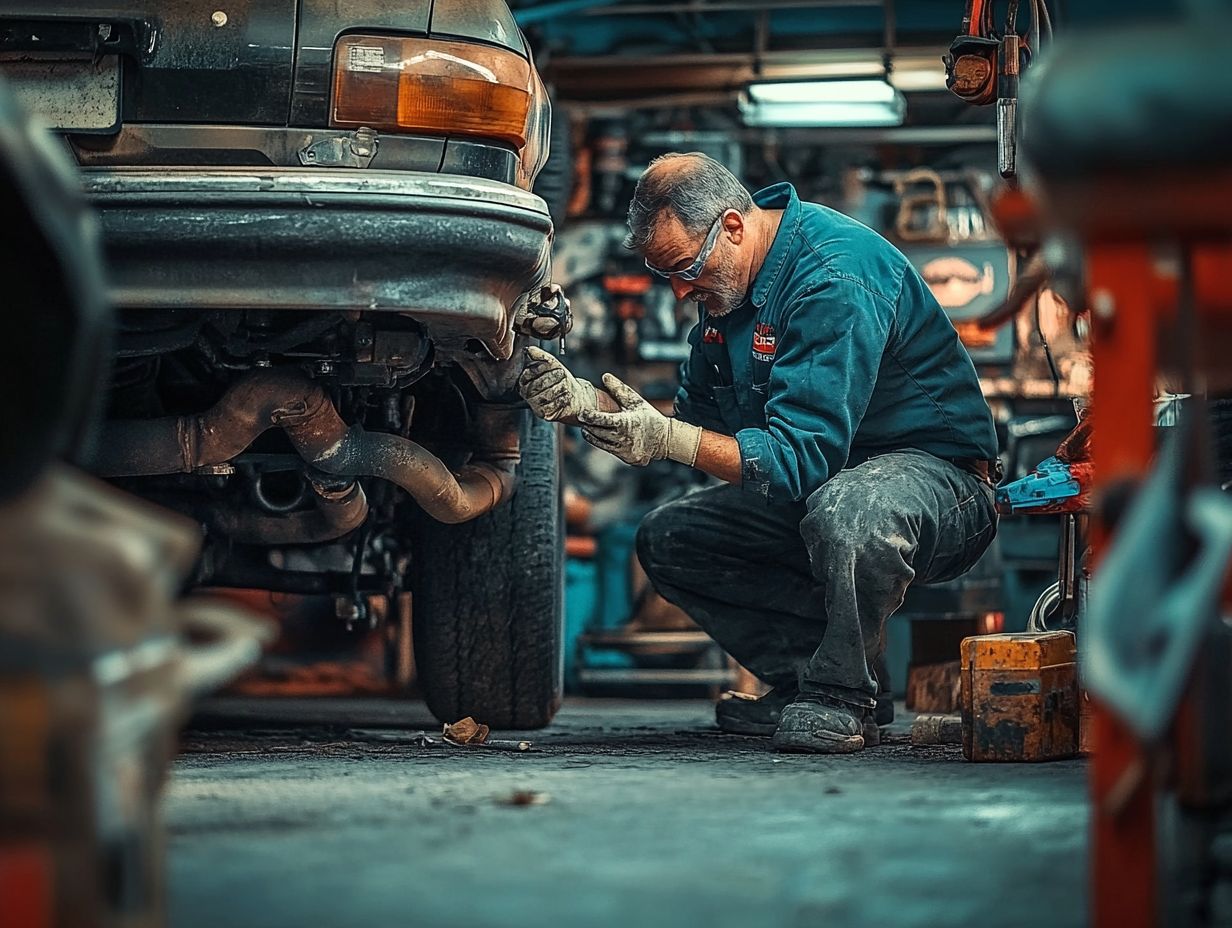
Effective maintenance and care tips are essential for ensuring the longevity of your exhaust system. Incorporating regular inspections and promptly addressing rust issues can significantly enhance your vehicle’s performance and reliability.
A comprehensive approach involves checking for loose connections, examining heat shields, and assessing the condition of mounting brackets during routine inspections. Timely repairs like replacing corroded parts and sealing leaks are crucial for maintaining optimal exhaust efficiency. This attention to detail not only improves fuel economy but also reduces harmful emissions.
Proactively tackling common rust issues, such as those found on pipe joints and hangers, extends the life of your exhaust system and mitigates the risk of severe problems that could lead to costly repairs down the line.
When to Seek Professional Help
Understanding when to seek professional assistance for exhaust issues is essential for ensuring your vehicle s safety and optimal performance.
Certain warning signs, such as persistent engine noise, frequent check engine alerts, and visible exhaust fumes, clearly indicate it s time to consult a skilled mechanic. Addressing these issues promptly will help you avoid more serious complications down the road!
Warning Signs to Watch Out For
Watch for warning signs of exhaust issues. Unusual engine noise, exhaust fumes, and persistent check engine lights demand your attention.
If fuel efficiency drops or you smell sulfur, take notice. These are red flags for potential exhaust system failures.
Look for rust or corrosion around the exhaust pipes. This indicates the system may be compromised.
If your vehicle shakes or vibrates excessively, it could mean problems with the exhaust hangers or the overall system integrity.
Act quickly if you notice these symptoms. Delaying repairs can lead to serious complications.
Consult an automotive professional for a thorough diagnostic evaluation. Timely repairs keep your vehicle safe on the road.
Frequently Asked Questions
What exhaust problems should I watch for?
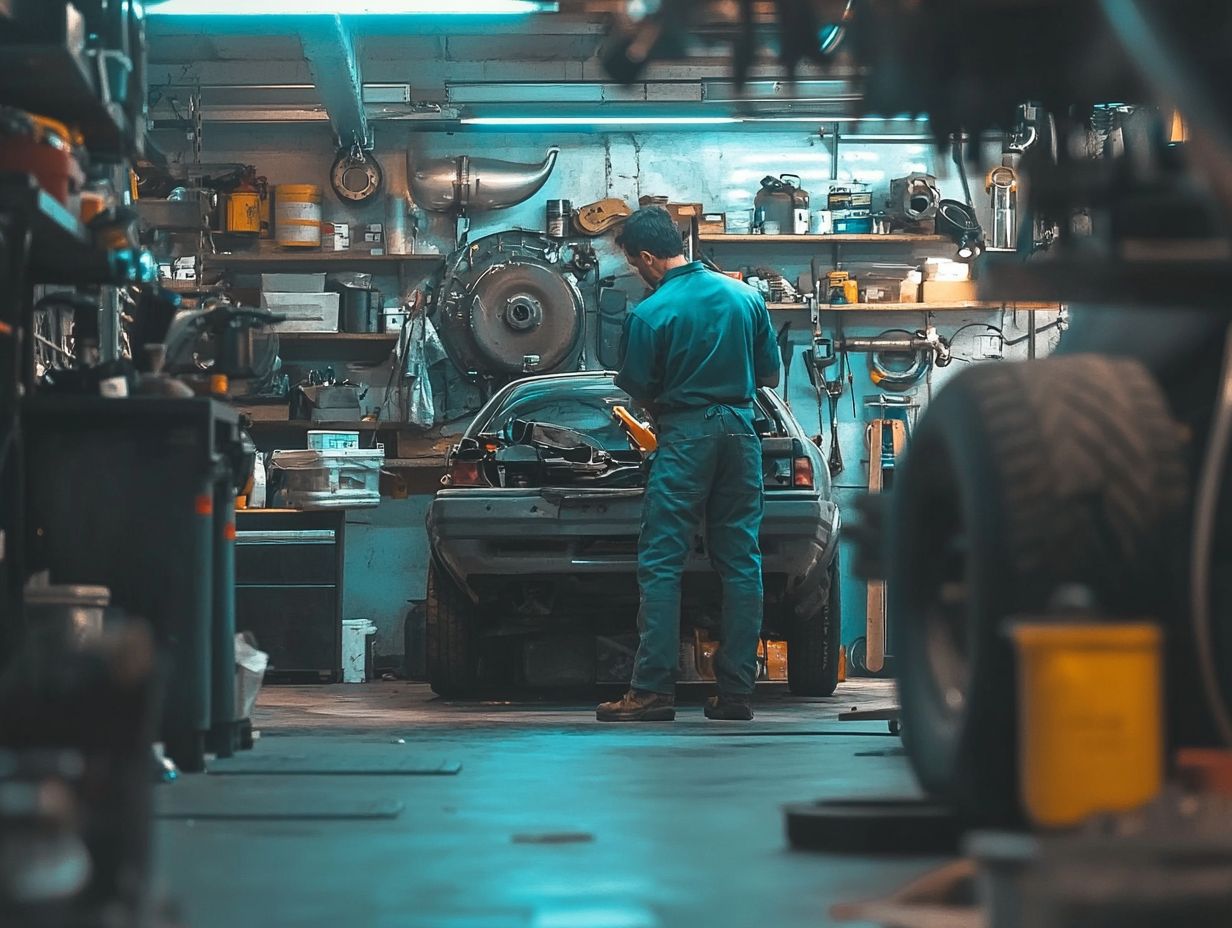
Watch for leaks, rust, excessive noise, and bad smells. Addressing these issues early can save you money and headaches.
How can I tell if my exhaust system has a leak?
You can check for a leak by inspecting your exhaust system for any visible holes, cracks, or gaps. You can also listen for a hissing noise or feel for any air escaping.
What causes rust and corrosion in exhaust systems?
Rust and corrosion are caused by exposure to moisture and salt, which can be found on roads during winter or in coastal areas. These elements can cause metal to deteriorate over time, leading to holes and cracks in the exhaust system.
Why is my exhaust system making loud noises?
Excessive noise from your exhaust can be caused by a variety of issues, such as a damaged muffler or exhaust pipe, a loose or damaged exhaust hanger, or a cracked manifold. It’s important to have these issues addressed as soon as possible to prevent further damage.
What is causing the bad smell coming from my exhaust?
A bad smell from your exhaust could be caused by a clogged catalytic converter, a leak in the exhaust system, or a malfunctioning oxygen sensor. It’s important to have this issue diagnosed and repaired by a professional mechanic to ensure your vehicle is running properly.
Can I fix my exhaust problems myself?
Some minor exhaust problems may be able to be fixed by a DIY enthusiast, but it’s always best to have a professional mechanic handle any major exhaust repairs. They have the experience and tools to properly diagnose and fix any issues, ensuring your vehicle is safe and running smoothly.

